Amrai Pari Paribarik Nirjaton Protirodh Jot (WE CAN)
ABOUT US
WE CAN PROFILE
Amrai Pari (WE CAN) is a countrywide Program in Bangladesh aimed for attitudinal change against violence against women. It aspires to unite men and women into an organized mass movement to transform existing power relations in society. The idea of Amrai Pari (WE CAN) is to break the silence, denial, shame and stigma surrounding the issue of domestic violence and other violence against women and bring it into the public domain, consciousness and accountability. The Program was initiated in 2004 as part of a South Asian regional campaign with the objective to challenge and change deeply entrenched patriarchal societal attitudes and practices that endorse gender discrimination and violence. After completing its 6 (Six) years as a campaign; Amrai Pari Jot (WE CAN) is now an independent registered organization which is managed by the National Committee and 40 District Committees. Since 2011, Amrai Pari (WE CAN), Bangladesh has been registered under Department of Social Welfare, Government of Bangladesh. At present, 200 Educational Institutions, 150 Youth Clubs and 450 organizations are involved with Amrai Pari (WE CAN). Amrai Pari (WE CAN) has mobilized more than 10,50,323 (1 million) of Change Makers so far (according to database).
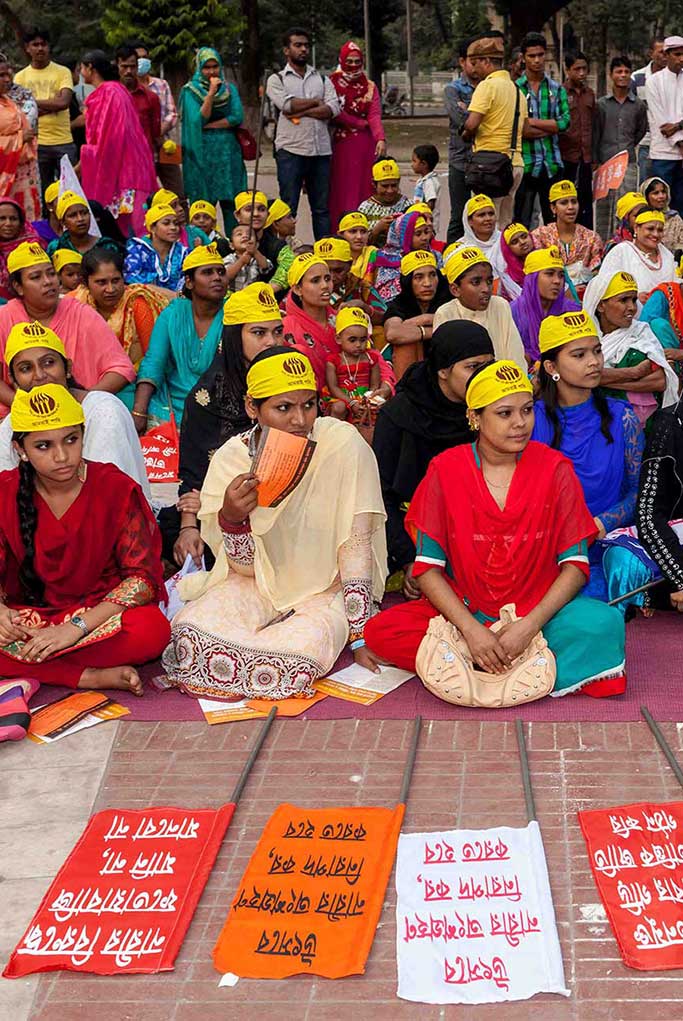
200
+Educational Institutions150
+Youth Clubs450
+Organizations1
M+Change MakersWHY WE CAN
In Bangladesh, domestic violence against women is widespread, but till date, it is considered as a familyâs internal affair. According to Bangladesh Bureau of Statistics (2015) report, 80% woman in Bangladesh experience physical, mental, sexual or economical violence from their husbands or close relatives. Regrettably, there is a silence in our society with regard to domestic violence.
According to Nobel Laureate Amartya Sen, due to maltreatment and violence against women 50 million women are estimated to be âmissingâ throughout South Asia.(More than 100 million women are missing- Amarthy Sen, The New York review of books, December 20,1990)
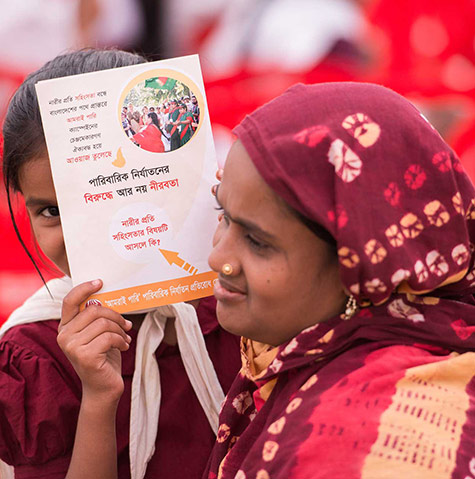
OUR PEOPLE
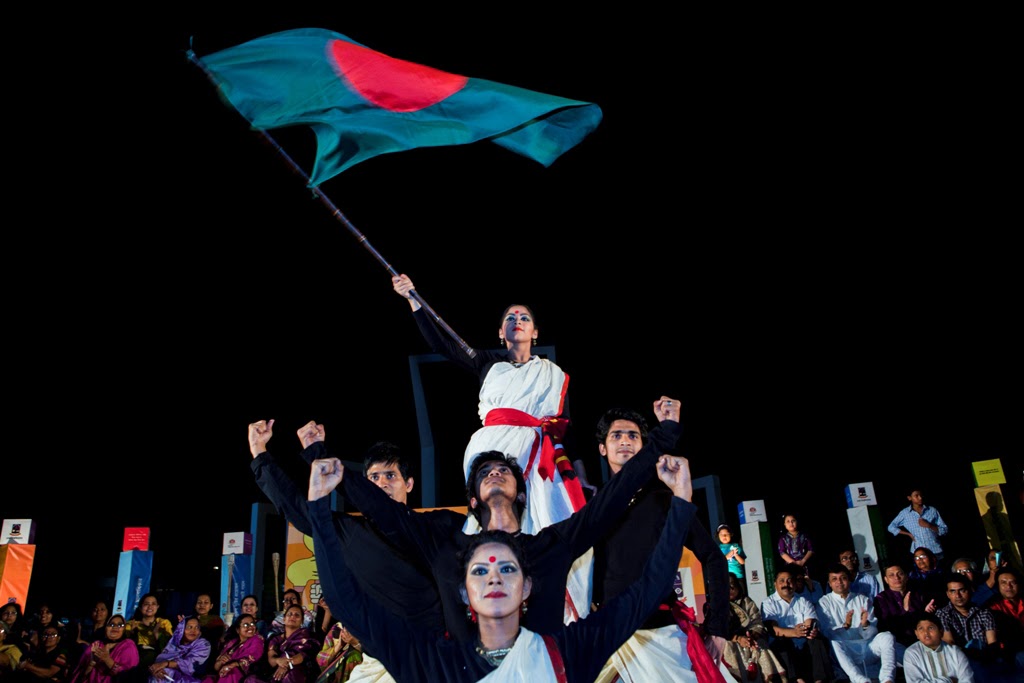
Amrai Pari Paribarik Nirjaton Protirodh Jot (WE CAN) allows an open platform from which not only different organizations but also different individuals from the grassroots level can address violence against women.
Different stakeholders are involved with Amrai Pari (WE CAN), Bangladesh. Those are:
- National and International Organizations
- Educational Institutions (Schools, Colleges, Universities)
- Trade Unions
- Professional Groups
- Youth Clubs and Voluntary Organizations
- Media Personnel
- Individuals (Change Makers)
Amrai Pari(WE CAN) is managed by National Committee,
District Committees and the National Secretariat.
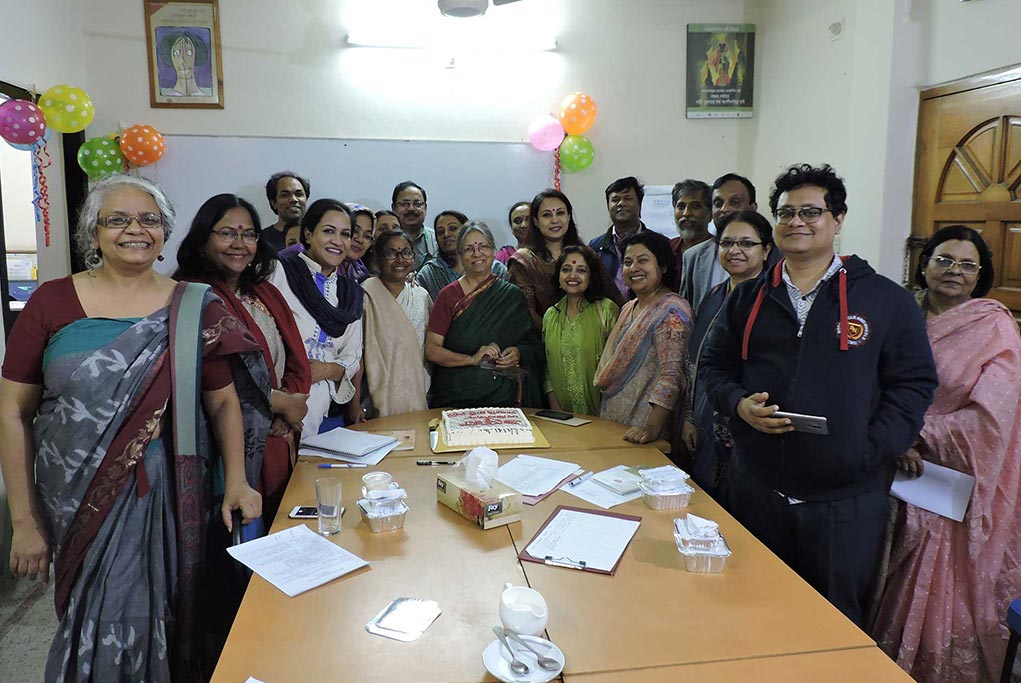
National Committee
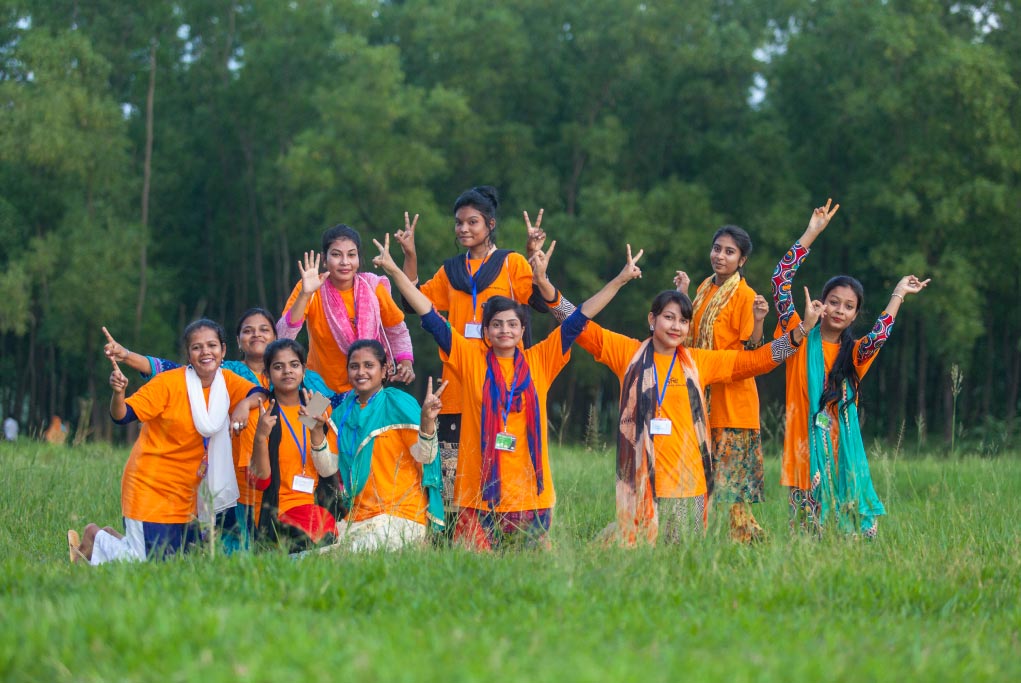
Subcommittees
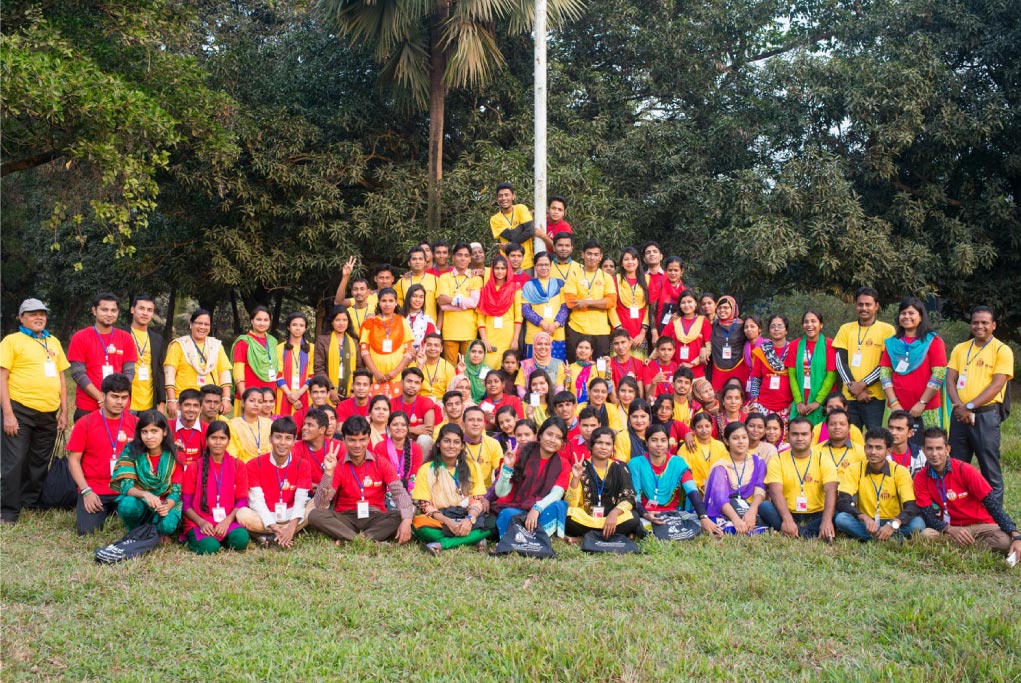
National Secretariat
Amrai Pari Jot (WE CAN) has a National Secretariat which is regularly undertaking a number of activities including delivering the strategic guidance to district alliances...
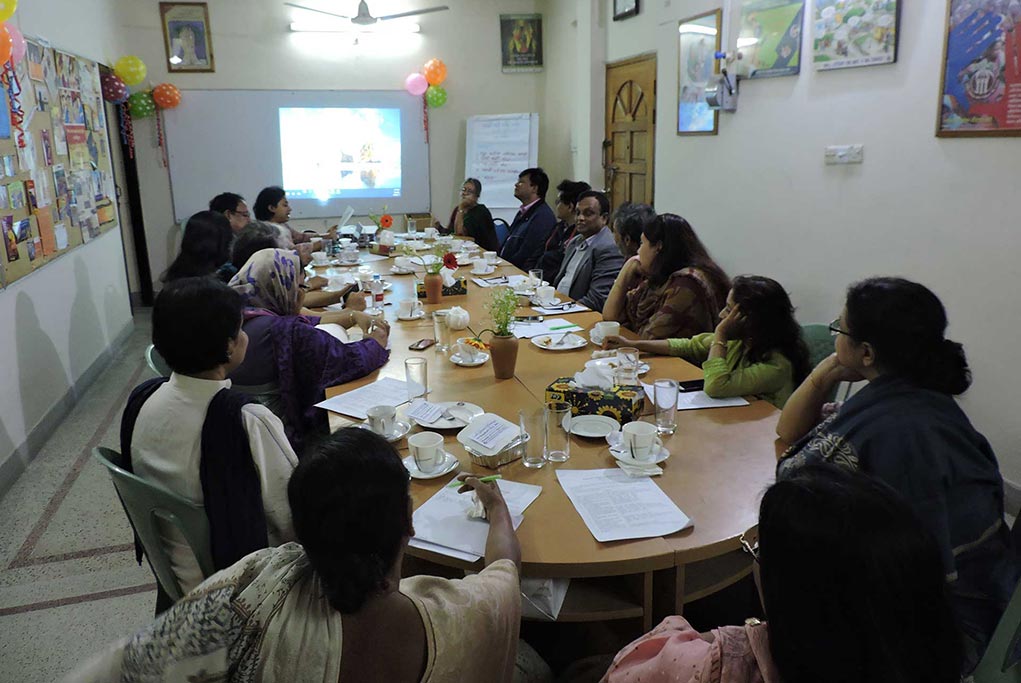
Executive Committee
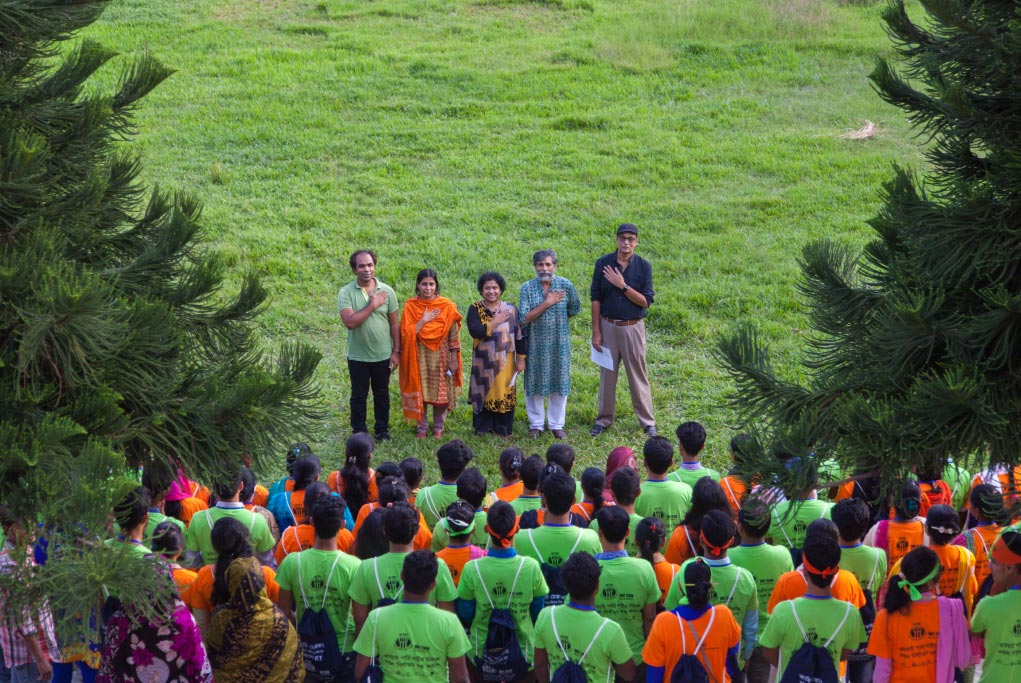
Advisory Committee
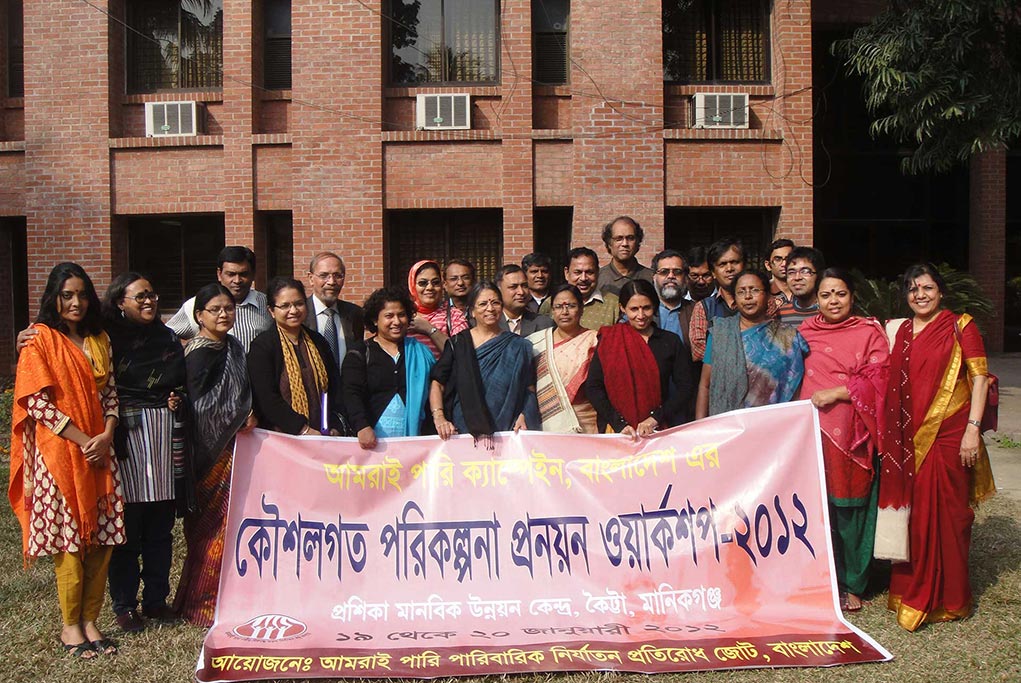
District Committees
District Alliances form the respective committees. Every district alliance has their different process to form the committee. 48 district committees have been formed till date...
WHAT WE DO
The major activities of the Amrai Pari (WE CAN)
Persons from different levels including students, housewives, NGO professionals, grocers, small business persons, rickshaw-pullers, farmers, nurses, polices, teachers, government bureaucrats, journalists are part of the organization and running the organizations activities. Hence, to analyse the unconventional approach of the program it is critical to build capacities of the Alliance alliance leaders and Connector Change Makers. Since 2011, the WE CAN Alliance Amrai Pari Jot has been taking initiatives towards this end. . The issues covered during the workshops included management of District Alliance and communication strategies in addition to topics related to gender and development. The distinguished feature of the Amrai Pari capacity building workshop is that the participants during the event prepared their respective action plan for future implementation Amrai Pari Jot developed a group of expert trainers from national to district level who can provide capacity building trainings on gender issue. In 2015, Amrai Pari has developed a training module for capacity development of its members. In 2017, Amrai Pari has developed another training module on Child Marriage Restraint Act 2017 and Violence against Women and Girls.
All the individuals, groups or organizations maintain regular contacts with each other. Change Makers think over processes to keep up the efforts of changing attitude; it is important to exchange and share experiences with likeminded individuals or groups. These discussions and meetings also kept the whole platform working in a systematic manner. Though members of the National Alliance sit for meetings twice a year, but examples can be found when they have met more than twice when required. On the other hand, members of the Executive Committee meet 3 times a year while members of the District Alliances sit together 2/3 times in a year. Ward Change Makers get together almost every month. The Upazila or Union Change Makers Committees schedule and arrange their meetings on their own. To keep all the members aware and in sync with the messages and ideas, and ensure the mission and vision of the Amrai Pari Jot is clear to all the Change Makers, it is important that these meetings and discussion sessions are organized regularly.
In every year Amrai Pari organizes two large scale programmes - a 7 days long campaign during March on the occasions of International Womens Day ( 8 March) and a 16 days long campaign in November centred around the International Day for Elimination of Violence against Women (25 November). On the very first hour of March 8, International Womens Day was celebrates in all of the districts jointly with other like-minded organizations and individuals.
Amrai Pari believes media can play an important role in changing perspective of the mass with the way. Hence, alongside the strong support from the program, Amrai Pari seeks to maintain a liaison with the media, (both print and electronic), is not only helping Amrai Pari, with publicity but is becoming a gender-sensitive partner by highlighting issues of violence and sensitizing the mass about it.
Amrai Pari has been advocating at policy level to build a favorable environment for waging social movement to restrain domestic violence and to achieve equality of women. This organization has identified domestic violence against women as issues of human rights and civil rights violations. As a result of the long- term movement of several organizations including Amrai Pari to recognize domestic violence as a legally defined crime, the people of Bangladesh have been awarded with the “Domestic Violence (Prevention and Protection) Act 2010" to stop domestic violence. Through the proclamation of the law, domestic violence has been declared as a criminal offense, not a social misconduct only. For implementing and promoting domestic Violence (Prevention and Protection) Act 2010, Amrai Pari worked with Plan International at divisional level under the 'Protecting Human Rights' project in 2016.
Nari Nirpotta Jot (NNJ)
On Pahela Baishakh evening- April 14 in 2015, when the whole Bangalee nation was celebrating Bangla Noboborsho 1422 (Bengali new year 1422) with huge enthusiasm and festivity, suddenly some rowdy people in the crowd assaulted and sexually harassed women at Dhaka University campus. Protesting violence against women in Pahela Baishakh, different human rights activists and organizations formed a unified civil society platform, named the “Women's Security Alliance”, on April 26, 2015. For a year, the Women's Security Alliance has continued the protests and took various steps to stop sexual harassment. The Alliance has taken initiatives to organize meetings with the members of the alliance and inquired the police about the role and actions of the law enforcing agencies. Women's Security Alliance leaders sat in a bilateral talk with the IG of the police on August 24, to get idea about the actions taken by the police and the advancement in the case of tortures and sexual violence on women during the Pahela Baishakh celebration program in 2015. In the meeting, the representatives of the alliance presented various perspectives of the context of the incident of sexual assault of the day.Social Action Committee
The Social Resistance Committee is a platform of 69 organizations dealing Women, Human Rights and Development conducting, which has been instrumental in preventing the oppression of women, prevention of women's rights and protection of human rights. The social prevention committee comprising 69 women, human rights and development organizations has been working together on several occasions demanding the continuation of the minimum marriage age of 18 years. The Social Resistance Cooperation Program has also taken several programs on social, political issues which violate women's rights.CIDV
The citizen alliance of 25 organizations- engaged in establishing women's rights- CIDV and Department of Women Affairs have been jointly working for enacting effective law and policies to prevent domestic violence, preparing training manuals for the implementation of the law and providing trainings for women's affairs officers. As the ongoing efforts of implementing the Domestic Violence Prevention and Protection Rules- 2013, WE CAN Alliance has been nominated as CIDV Secretariat. One of the major goals of the alliance is to establish domestic violence as a criminal offense through identifying domestic-violence against women as violations of human rights and civil rights. In this context, the alliance has been working for creating awareness and forming public opinion among mass people. After taking charge of the Secretariat, WE CAN Alliance has taken initiatives for developing modules, area mapping, and making list of service providing organizations as per the law by taking along the CIDV alliance members and communicating with Department of Women Affairs and Ministry of Women and Children Affairs. Additionally, for providing necessary services to the enforcement officers, Area identification table/scheme/outline prepared by the citizen alliance (CIDV) has been completed. A booklet with the title "Domestic Violence (Prevention and Protection) 2010" has been published. Initiatives have been taken to give notification to the government about filling out the form "Ga" to be enlisted as a servicing agency.Amari Pari Bangladesh regularly brings out situational campaign materials to disseminate in order to change peoples knowledge, attitude and practice with regard to violence against women. The campaign materials also help change makers to enrich their conceptual understanding and motivate their stance against violence. The campaign materials of several forms have been developed and disseminated including wall painting, rickshaw painting, boat painting, billboard, mug, vanity bag, mobile bag, poster etc. Amrai Pari, also published several booklets, posters, leaflets and stickers in a way that they would be suitable for all ages and types of people.
Under the supervision of an international expert, OXFAM conducted a research work titled Evaluation of Effectiveness of the Project. The research work was undertaken in 92 villages of 4 districts ( Naogaon, Panchagar, Nilphamary and Thakurgaon) of 2 Northern Divisions ( Rajshahi and Rangpur). The research surveyed 1159 women and 1154 men to examine whether the Campaign activities managed to bring changes in their attitude towards the relationship between women and men and violence against women. The research concluded that the result was positive and in areas where WE CAN Campaigns activities were implemented; people are more sensitized about the violence against women. Another research report (The WE CAN Campaign in South Asia 2004-2011:External Evaluation Report: Michaela Raab) was published with regard to evaluating WE CAN Campaigns activities in 3 South Asian countries (Bangladesh, India and Nepal). Field level information was collected in India and Nepal where as in Bangladesh the research used secondary information. This evaluation justified OXFAM's initiative. OXFAM took initiative to document their 7 years journey. This year, a documentary, titled Ovijatra (The Voyage) was made based on the experiences of WE CAN. The documentary is based on the Change Makers changing behaviours and their future plan in WE CAN. It covers the Change Makers from 4 divisions. A baseline has been conducted before the new journey of WE CAN Alliance in Bangladesh. The study is conducted among 230 Change Maker in 8 Districts of 4 divisions.
Amrai Pari is highly aware to ensure the quantity and quality services on time. Amrai Pari has been developed strong internal monitoring system based on Amrai Pari M&E frame work and the standard procedures and principles of internal Accounting, Learning and Planning System. The monitoring system ensure the quality services, accurate utilization of inputs, and proper distribution of supports, identify the challenges in implementing level and resolve the challenges. The full time expatriate Executive Coordinator is responsible for overall coordination and supervision of the program. Programme officers and other staffs are the key personnel for monitoring the progression of the program and ensure smooth and meaningful implementation of the program. A full time accountant is responsible for monitoring program expenditure and overseeing all financial aspects of the project, in addition to which regular internal audits have been conducted for effective financial monitoring. National and Executive Committee members are also part of active program, financial and strategic monitoring component of Amrai Pari. There is continuous monitoring or process monitoring in operations. Amrai Pari produce a quarterly, half yearly, annual, mid-term and final assessment reports (describing the immediate output and constraints) and submit to the management so that the progression can be measured and immediate steps taken to foster the program implementation process as well. The programme monitoring report reconcile with the quarterly, half yearly, annual, mid-term financial report to ensure an even expenditure process through the program period. Findings and recommendations from the monitoring incorporate in the future plan of program. Under the organizational monitoring and evaluation framework the organization assess impact and contribution to goal & objective of organization.
Amrai Pari Paribarik Nirjaton Protirodh Jot (WE CAN)
Amrai Pari Paribarik Nirjaton protirodh Jot (WE CAN) is a collective platform of civil society, organizations, individuals, institutions and others aim of ending violence against women. Amrai Pari (WE CAN) is emerged as organization from South Asian Regional Campaign WE CAN which has been launched in 6 South Asian countries (Sri Lanka, India, Nepal, Pakistan, Afghanistan and Bangladesh) with an aim to stop all sorts of violence against women in 2004. After completing its successful 6 years campaign, during the annual general meeting (on 20th April, 2011) the affiliated organization and individuals decided to continue the Program. In 2011, WE CAN Bangladesh took registration from government of Bangladesh as platform of civil society Organization as Amrai Pari Paribarik Nirjaton Protirodh Jot (WE CAN). Amrai Pari (WE CAN) Bangladesh is now the member of regional and global WE CAN Forum also.
Amrai Pari Paribarik Nirjaton Protirodh Jot (WE CAN)
Amrai Pari Paribarik Nirjaton protirodh Jot (WE CAN) is a collective platform of civil society, organizations, individuals, institutions and others aim of ending violence against women. Amrai Pari (WE CAN) is emerged as organization from South Asian Regional Campaign â WE CANâ which has been launched in 6 South Asian countries (Sri Lanka, India, Nepal, Pakistan, Afghanistan and Bangladesh) with an aim to stop all sorts of violence against women in 2004. After completing its successful 6 years campaign, during the annual general meeting (on 20th April, 2011) the affiliated organization and individuals decided to continue the Program. In 2011, WE CAN Bangladesh took registration from government of Bangladesh as platform of civil society Organization as Amrai Pari Paribarik Nirjaton Protirodh Jot (WE CAN). Amrai Pari (WE CAN) Bangladesh is now the member of regional and global WE CAN Forum also.
Respect: Mutual respect and participation of beneficiaries, alliance organisations, donors & staff.
Integrity: Honesty and transparency in what we do and say, and accept responsibility for our collective and individual actions.
Commitment to Service: Work together effectively to better serve the disadvantaged community of the society.
Excellence: Continuously challenge ourselves to achieve greater impact from learning and sharing
Diversity: Value and respect the individual's unique qualities and abilities, in order to fulfill and strengthen our vision and mission.
Amrai Pari focused on continuation of the behavioral changes of the Change Makers themselves would create new Change Makers. The major activities of the Amrai Pari focus on :
- Campaign Regularly
- Enroll Change Maker
- Develop Behavioral Change Communication (BCC) Publications/Materials
- Capacity Building
- Mobilize Media
- Conduct Action Research
- Sensitize the Service Providers
- Conduct Policy Advocacy
- Building Capability
- Networking
- Institutionalization
About Us
Amrai Pari Paribarik Nirjaton Protirodh Jot (WE CAN) is a collective platform of civil society, organizations, individuals, institutions and others aim of ending violence against women.
Keep In Touch
Amrai Pari (WE CAN) Secretariat
6/4 A, Sir Sayed Road (2nd Floor)
Mohammadpur, Dhaka-1207 Bangladesh
Tel: +88 02 41023217
E-mail: [email protected]
Web: www.wecan-bd.org
Copyright © 2018 All Rights Reserved By We Can Bangladesh
About Us
Amrai Pari Paribarik Nirjaton protirodh Jot (WE CAN) is a collective platform of civil society, organizations, individuals, institutions and others aim of ending violence against women.
Keep In Touch
Amrai Pari (WE CAN) Secretariat
6/4 A, Sir Sayed Road (2nd Floor)
Mohammadpur, Dhaka-1207 Bangladesh
Tel: +88 02 41023217
E-mail: [email protected]
Web: www.wecan-bd.org
Copyright © 2018 All Rights Reserved By We Can Bangladesh
